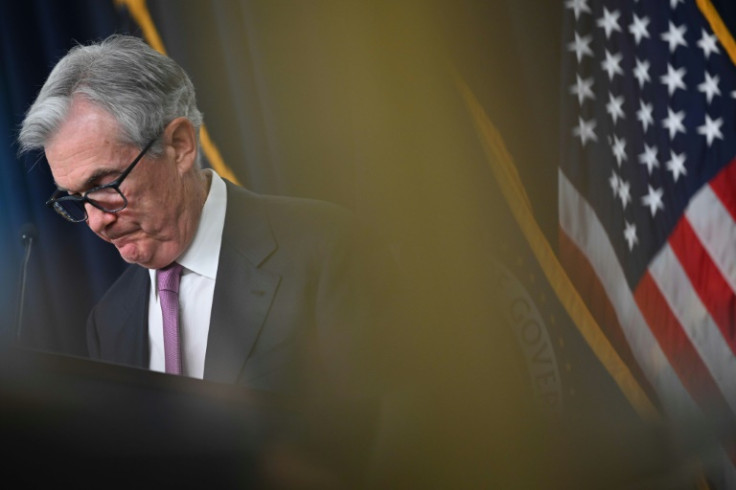Most Markets Rise As Traders Weigh Central Bank Rate Plans

Most markets rose in Asia on Thursday, building on the previous day's advances, even after central bank chiefs warned that interest rates would rise further to counter persistent inflation.
The region has enjoyed a broadly positive few days after last week's losses as US data soothed concerns about a possible recession in the world's top economy.
However, worries over the outlook for China continue to weigh on sentiment in Hong Kong and Shanghai after mainland officials failed to provide any details on plans to boost growth, despite pledges of help.
With the weekend crisis in Russia appearing to have ebbed, focus is now back on efforts by the Federal Reserve and other central banks aimed at fighting inflation.
On Wednesday, Fed boss Jerome Powell said officials were leaving the door open to two more hikes, having paused at their July gathering for the first time since kicking off their campaign early last year.
"Policy hasn't been restrictive enough for long enough," he told an annual gathering of central bankers in Sintra, Portugal. "We believe there's more restriction coming."
He added policymakers had not decided whether to go for two successive increases or at alternate meetings and warned rates could stay high for some time as the board tries to cut inflation to their two percent target from the current four percent.
"We will be restrictive as long as we need to be," he said.
His comments came after European Central Bank chief Christine Lagarde said eurozone borrowing costs would continue to rise.
Even Japan's central bank boss indicated it could move away from its long-running ultra-loose monetary policy, which it has stuck to despite rising prices and a sharp drop in the yen.
The Bank of Japan's Kazuo Ueda said it could begin normalising policy if officials were confident inflation would pick up next year.
He said underlying inflation remained below two percent but the board saw it slowing as the year went on.
"From there on, we are forecasting some increase in the rate of inflation into 2024 -- but, we are less confident about the second part," he added.
"If we become reasonably sure that the second part is going to happen, that could be a good reason for a policy change."
Ueda's remarks gave a little support to the yen, which has dropped in recent months against its major peers as monetary policies diverge.
Traders are keeping tabs on the yen after Japanese officials in recent days said they were following developments closely, indicating they could intervene to provide support if it continues to weaken.
The speeches in Portugal firmed up expectations that monetary policies would remain restrictive.
Still, while Wall Street ended on a mixed note, most of Asia advanced.
Tokyo rallied thanks to strong gains for chip firms, while Sydney, Wellington, Taipei and Manila were also up.
Hong Kong fell with Seoul while Shanghai fluctuated.
However, Daniel Lam, at Standard Chartered Wealth Management, said Asia could benefit from ever-rising US rates -- even with the economy holding up -- as investors seek cheaper borrowing options.
"Economic surprise was really one of the key reasons why US equities were doing so well over the last few months," he told Bloomberg Television.
"But if the hurdle gets higher and higher, becomes harder to beat, investors (may rotate) into other regions such as Japan and Asia."
Tokyo - Nikkei 225: UP 0.5 percent at 33,348.49 (break)
Hong Kong - Hang Seng Index: DOWN 0.9 percent at 18,993.21
Shanghai - Composite: FLAT at 3,188.75
Euro/dollar: DOWN at $1.0900 from $1.0917 on Wednesday
Pound/dollar: DOWN at $1.2634 from $1.2637
Dollar/yen: DOWN at 144.33 yen from 144.47 yen
Euro/pound: DOWN at 86.27 pence from 86.36 pence
West Texas Intermediate: DOWN 0.3 percent at $69.34 per barrel
Brent North Sea crude: DOWN 0.3 percent at $73.78 per barrel
New York - Dow: DOWN 0.2 percent at 33,852.66 (close)
London - FTSE 100: UP 0.5 percent at 7,500.49 (close)
© Copyright AFP 2025. All rights reserved.





















